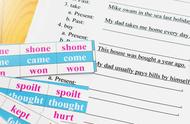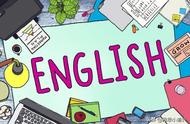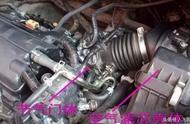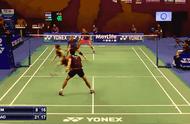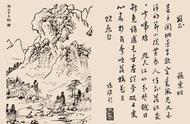
一、同义词、词组互相转换
用同义词或同义词组对原句中的某些词或词组进行替换,注意转换后的词或词组的词形变化要与句子其他成分相适应。如:
1. That day we could see flowers here and there.
That day we could see flowers __________.
答案:everywhere
解析:everywhere与here and there都表示“到处”。
2. The teacher always takes good care of the children in the school.
The teacher always______ _____the children well in the school.
答案:looks after
解析:take good care of与look after…well都表示“好好照顾”。
以下要点知识请牢记:
同义词:
1 alone=by oneself
2 actually=in fact
3 also=too=as well
4 another=one more
5 arrive in(at)/=get to=reach
7 continue/go on
8 cost=spend=take=pay
9 cross=go across
10 sometimes/=at times
11 die/=lose one’s life
12 now/at the moment
13 else=other
14 then=at that moment/at that time
15 like/love/enjoy/be fond of/be interested in/care for
16 will/be going to/be about to
17 want/would like
18 can/be able to/have the ability to do
19 visit/call on
20 favorite/like best
21 happen/take place
22 decide/make a decision
=make up one’s mind 决心…
23 found/establish/set up
24 finally/at last/in the end
25 leave/be away
26 return/give back
27 why/what for/how come
28 over/more than
29 whatever/no matter what
30 whenever/no matter when
31 walk/ go…on foot
32 should/ought to/be supposed to
33 population/people
34 quit/stop/drop/give up
35 maybe/perhaps/may be
同义词组:
1 a lot of/lots of
2 all over the world/around the world
3 not as(so)…as/less than
4 as…as possible/as…as sb can
5 at risk/in danger/in trouble
6 at the age of…/when sb. be …years old
7 because of/due to/as a result of/with one’s help/thanks to
8 be careful/look out/take care
9 be worried about/worry about
10 both…and…/not only…but also…
11 be good at/do well in
12 be proud of/take pride in
13 come up with/think of/have an idea
14 ride a bike/go…by bike
15 come from/be from
16 have a good time/enjoy oneself/ play happily
17 have a pain in head/have a headache
18 hear from/receive(get) a letter from
19 had better do/It’s best to do
20 how about/what about
21 in order to/in order that/to do/so that
22 keep off/keep away from
23 in/wear
She is in/wears a white dress today.
24 keep sb. from doing/stop sb. (from) doing/prevent sb. (from) doing
25 learn …by oneself/ teach oneself
26 like …better than/prefer…to…/prefer to do…rather than do …
27 long, long ago/once upon a time
28 look after well/take good care of
29 no longer/not …any longer
30 shall we/Let’s..
31 take part in/join in/participate in
32 too…to/so…that…/enough to…
同义句型:
1、运用两种时态(一般过去时和现在完成时互相转换)
(1) He left last year.
(2) He has been away for one year.
(3) He has been away since a year ago.
(4) It is a year since he left.
(5) One year has passed since he left.
2、最高级和比较级的互相转换
(1) He is the tallest student in his class.
(2) He is taller than any other student in his class.
(3) He is taller than the other students in his class.
(4) No one else is taller than him in his class.
3、运用两种语态(主动语态和被动语态互相转换)
I clean my room every day./My room is cleaned every day.
4、感叹句的两种句型之间互相转换
What a careful girl she is!/How careful the girl is!
5、运用关联词语合并句子
(1) Amy can’t dance. Susan can’t, either. Neither Amy nor Susan can dance.
(2) I has eaten breakfast and my mother has eaten it, too. Both my mother and I have eaten breakfast.
6、运用复合句和不定式互相转换
(1) I hope that I can visit the moon one day./I hope to visit the moon one day.
(2) He told me how he could use a computer./He told me how to use a computer.
7、运用不同的句式结构互相转换
(1) She wants to go shopping and her friends want to go shopping, too./She wants to go shopping, and so do her friends.
(2) He went to bed after he finished his homework./He went to bed after finishing his homework./He didn’t go
to bed until he finished his homework.
(3) Come on, or we’ll miss the early bus./If we don’t hurry, we’ll miss the early bus.
(4) The man gave us a talk last week, and he will give us another talk this week./The man who gave
us a talk last week will give us another talk this week.
8、用it做形式主语互相转换
(1) He can finish the work easily./It is easy for him to finish the work.
(2) We found it hard to shake./We found it was hard to skate.
二、反义词、词组的否定式进行转换
即用反义词或词组的否定式表达与原句相同的意思,主要考查学生对反义词(词组)的积累和换位思维的能力。如:
1. It’s clear that this visit is different from last time.
It’s clear that this visit is not the___ ___last time.
答案:same as
解析:be different from意为“与……不同”;the same as意为“与……相同”,其否定式与be different from同义。
2. I think wealth is less important than health.
I ___ think wealth is ___ important than health.
答案:为don’t,more
解析:less important的意思是“没有(不及)……重要”;more important的意思是“(比)……更重要”,该结构与not连用,则表示“不比……更重要”。
另外,有的反义词即使不与否定词连用,而只需改变句子结构也可构成同义句。如:
He lent some money to his friend.
He friend ___ some money ___ him.
答案为borrowed,from
解析:borrow…from...意为“向……借……”;lend…to...意为“把……借给……”。两个结构意思相反,但若变换“借出者”与“借入者”的位置,则可转换为同义句。
三、运用不同语态进行转换
即运用主动语态与被动语态的变化来转换同义词,但此时要特别注意时态、动词一致性。如:
1. Everyone should give back his library books on time.
Library books should____ ____ ____ on time.
答案:be given back
解析:被动句中含有情态动词should,因此助动词用be。
2. It is widely accepted that more people use computers in the world today.
It is widely accepted that computers ____ widely ___ in the world today.
答案为are,used
解析:computers是复数名词,助动词用are。
四、非延续性动词与延续性动词的相互转换
即非延续性动词与延续性动词进行转换,此时往往会涉及时态的变化。如:
1. The manager left two hours ago.
The manager _____ ____ ____ for two hours.
答案:has been away
解析:leave为非延续性动词,不能与for two hours这样的一段时间连用,而改成be away这样的延续性动词后,则可连用一段时间。
2. The film began five minutes ago.
The film has been _____ _____ five minutes.
答案:on for
解析:has been提示时态是现在完成时态,“for 时间段”表示“持续(一段时间)”,常用在含有现在完成时态的句子里。
3. Mr Li joined the Party twenty years ago.
Mr Li _____ _____ _____ the Party for twenty years.
答案:has been in
解析:短暂动词join,意为“参加、加入(组织,政党)”,不能与延续时间状语连用,与延续性时间状语连用时,将join改成be in或be a member in…。
五、运用不同引语进行转换
即将直接引语变为间接引语或将间接引语转换成直接引语。此时还要注意相关时态、人称、动词、状语等相应的变化。如:
1.“I’ve found my wallet,” he said to me.
He _________ me that he _________ _________ his wallet.
答案:told,had found
解析:此题是将直接引语转换成间接引语。
2. “Did you see her last week?” he said.
He _______ _______ I had seen her the week _______.
答案:asked if/ whether, before
解析:此题是将疑问句的直接引语转换成间接引语。
六、简单句与复合句之间的转换
即将简单句变成同义的复合句或将复合句变成同义的简单句。如:
1. We didn’t go out for a walk because it was raining.
We didn’t go out for a walk _______ _______ the rain.
答案:because of
解析:将原因状语从句because it was raining改为表示原因的介词短语because of the rain。
2. He was so excited that he couldn’t go to sleep.
He was ______ ______ ______ go to sleep.
答案:too excited to
解析:将so…that…换成too…to…结构,原句的that从句为结果状语从句,改写句中的不定式仍表结果。
3. Now I will show you how to do the work.
Now I will show you ______ ______ ______ do the work.
答案:how you can
解析:即将原句中的“疑问词 不定式”结构转换成宾语从句。
4. You should put them back after you use them.
You should put them back _____ _____ them.
答案:after using
解析:即将after引导的状语从句改写为after引导的介词短语。
七、并列句与复合句之间的转换
即将并列句变成同义的复合句或将复合句变成同义的并列句。如:
1. Come on, or we’ll miss the early bus.
____ we ____ hurry, we’ll miss the early bus.
答案为If,don’t
解析:if引导条件状语从句。
2. The man gave us a talk last week. He will give us another talk this week.
The man _____ gave us a talk last week _____ _____ us another talk this week.
答案为who/ that,will give
解析:who/ that gave us a talk last week为定语从句,修饰先行词the man。
八、运用关联连词连接或合并句子
即运用关联连词both…and…,neither…nor…,either…or…,not only…but also…等将两个简单句合并为一个简单句。此时要注意的是,both…and…连接两个主语时,谓语总是用复数,而neither…nor…,either…or…,not only…but also…连接两个主语时,谓语动词通常应与靠近的主语保持一致。如:
1. Tom can’t speak Japanese well and Jim can’t, either.
______ Tom ______ Jim can speak Japanese well.
答案:Neither,nor
解析:neither…nor…表示“……和……(两者)都不”,刚好与原句的两个否定结构的意思相吻合。
2. Alice has read the book and Peter has read it, too.
______ Alice ______ Peter have read the book.
答案:Both,and
解析:both…and…的意思是“……和……(两者)都”。
3. This store sells men’s shoes, and it also sells men’s clothes.
This store sells ______ ______ men’s shoes ______ ______ men’s clothes.
答案:not only,but also
解析:not only…but also…表示“不仅……而且……”之意。
九、运用某些典型句式或结构进行转换
这类典型结构如so…that…,too…to…,enough to,not…until…,so do I 等。如:
1. Jim wants to go boating and his parents want to go boating, too.
Jim wants to go boating, and ______ ______ his parents.
答案:so do
解析:句意为“……他的父母也一样(一样想去)”。
2. John went to bed after he finished his homework.
John ______ go to bed ______ he finished his homework.
答案:didn’t,until
解析:not…until意为“直到……才”。







